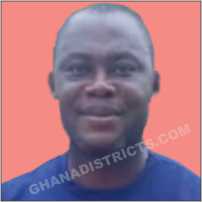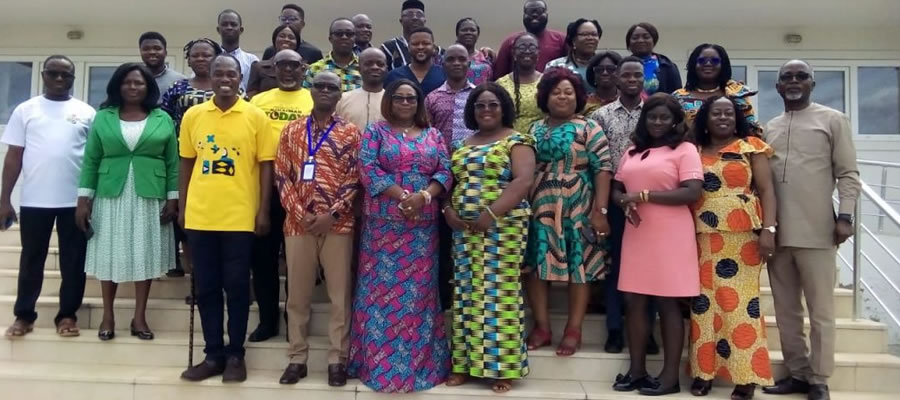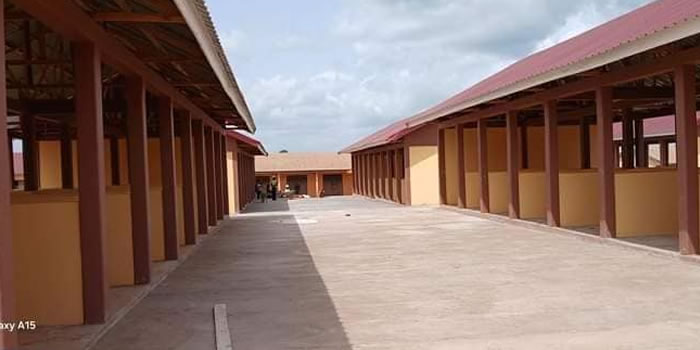

Culture is lifestyle as manifested by a particular people or society. So it is man-made, not genetically inherited. It is evolved for the purpose of living. It is socially taught and learned. It originates as human response to the physical and biological environment. Cultural traits are regarded as society’s norms handed down the generations. Culture, however is dynamic and is often affected by local and external influences and stimuli.
Culture is expressed in intangible or non-material form, for instance in terms of languages, dialects, philosophical thought, cosmology, morals and ethics, religious beliefs and rituals, oral traditions, folklore, festivals, political ideas, music and dance, social customs related to birth, puberty, marriage, family life, work, death, etc. Culture is also expressed manifested in tangible or material form, in terms of types of food, diverse technology and crafts clothing, body decoration, visual art and symbols, secular and religious architecture, etc.
The People
The people in Nkoranza form part of the Akans of Ghana, who speak the Bono dialect. According to local folklore, Nkoranza as a state was established by three old men “Nkokora-miensa”. Nkoranza therefore derived its name from “Nkokoraa miensa”. This is indicative of the fact that the people constitute one familywith one identity. The cultural practices and norms are tailored along these of the Akans of Ghana, the main ethnic group in Ghana. It is one of the few matrilineal societies in Ghana and West Africa. The people trace their lineage through the mother and traditionally, inheritance is devolved through matrilineal lines. Since matrilineal decent group needs the active participation of its female member woman divided their time and loyalties between the husbands and their lineages. The community or village is a social as well as an economic unit. Everyone participates in the major public ceremonies, the most frequent of which are funeral celebrations which typically last several days. Attendance at funeral is normally expected from everyone in the community and expenditure on funerals is a substantial part of the household budget. Funeral expenditure is eventually shared by the general society through individual and group donations to the bereaved family.
Language
Nkoranza people speak Bono, one of the Twi dialects of the Akan origin. The language is unique and very rich in proverbs, the use of which is taken to be a sign of wisdom. Euphemisms in the Bono dialect are very common, especially about events connected with death and solemn occasions. Since the majority of residents in the Nkoranza South District are indigents, the Bono language is the lingua-franca in the area. All settles who join the people are motivated to learn the language to be able to communicate well. The language therefore offers opportunity to explain development issues to the people, since over 90 percent of residents understand or speak the language. The culture is also not diversified. The people are therefore unified by the single language spoken which gives the area unique cultural features and traditions that give identify, self-respect, and pride to the people. This promotes unity, stability and peace in the area.
Chieftaincy and Traditional Authority System
As in the typical Akan social structure, the head of the Nkoranza Traditional Area, ‘Oman’ is the Omanhene or Paramount Chief, the supreme overlord. Next after the Omanhene are the Divisional chiefs, Ohene who take responsibility for the divisional areas. Each Divisional area comprises a number of villages, nkura. Each nkura in inhabited by groups of family lineages or abusua forming clans. Each clan in the village is headed by an abusuapanin, the elder of the family group. In Nkoranza, the Paramount chief is regarded as the supreme head of the Oman (Nkoranzaman) or state and is supported in his work by the divisional chiefs, the Odikros and their queens. The Traditional Authority System was likened to a modern state with the Paramount chief as President and the Divisional chiefs as his ministers.
Nkoranzaman’s Traditional Authority extends beyond the political boundaries of Nkoranza South Municipal. It covers the political and Administrative of Nkoranza North, Nkoranza South, Kintampo North and South Districts. The land areas of these municipality traditionally belong to the Omanhene of Nkoranza.
The Divisional chief or Ohene, is a position that is conferred on and Odikro by the Omanhene. The divisional chief has authority over a number of sub-divisional chiefs. The sub-divisional chiefs may be the Odikro or village chiefs but have authority over a limited number of villages Odikro literally means the owner of the town.
The Traditional authority structure follow pattern below
Chiefs are patrons of the traditional arts, crafts, festivals, folklore, languages and literature, customary law, traditional customs and usages. They provide vital leadership at the level and superintend the task of transmitting oral traditions, and maintenance of historic relics, sites, monuments and cult centers. Their role as the unifying agents and mobilizes of the people can drive the development process of the district. At the local level, traditional authorities provide the leadership required in community mobilization for development, for law and order to prevail.
Family System
In the Nkoranza South individuals are born into the extended family system rater then the nuclear family. The extended family is a collection of the nuclear that goes beyond the biological parents and their immediate siblings or children. The extended family system in practice is a chain of complex relationships consisting of both maternal and paternal relations such as parents, brothers, sisters, uncles, cousins, nephews, nieces, grandparents and grandchildren. At times, these relationships are extended to cover in-laws.
The nuclear family system which consists of a man, his wife and children is also recognized in the society but it is considered primary, in that when the people say family, they refer to the extended family. To the Akans, the concept of nuclear family is a foreign tradition, introduced by Christianity from the Western world. Even though, through time, the nuclear family is gaining roots, it has never replaced the extended. In such cultural tradition, the extended families serve as support systems for the society as a whole. The whole family tends to support a member in need.
Marriage
Marriage refers to a union between a man and a woman who have consented to live together as husband and wife. In the Akan societies, including Nkoranza, marriage goes beyond couples; it involves the extended families of the couple. Monogamy and polygamy are the main marriage systems in Nkoranza. Traditionally, a man is permitted to many more than one wife, if he chooses to do so. Women are customarily forbidden to engage in sexual relations with more than one man, not to talk of marrying two. Polygamy is a form of marriage in which a person maries more than one husband (polyandry) or man a man legally married to more than one wife (polygamy). Monogamy on the other hand is the system where a man is allowed to marry only one woman. In the Akan tradition, marriage between two persons of the same sex is strictly prohibited by norms and traditions.
In the past, polygamy was orderly practiced as against monogamy. With emergence of Christianity and influence of foreign culture, monogamy is now dominating. From the field data, about 89.3% of married respondents in monogamous relationship with 10.7 percent in polygamy. The trend may be attributed to restrictions on polygamous marriage by the Christian faith. This is also due to the fact Christians dominate the local society.
Table 1.23 :Marriage system pattern in Nkoranza South
Monogamy 89.5
Polygamy 10.7
Total 100
Source: field data construct 2010
Cross – Cousin Marriage
As in Akan society, the matrilineal descent group, abusua, is exogamous. That means members must marry outside the group. Any marriage among members of the abusua, is incest (mogyafra) and a toboo. This means that husband and wife must belong to different descent groups. A father belongs a different desent group from those of his children. By this calculation, a cross causing, child of mother’s brother, or child of father’s sister is marriageable. In fact, in matrilineal societies such cross consins are often preferred spouses.
A cross cousin is the child of one’s parents’s sibling of the atternate sex. A cross cousin is contrasted with parallel cousin, who is seen as a brother or sister, e.g. a child of a mother’s sister or child of a father’s brother. Marriage with a parallel cousin would be seen as incestuous. As time passes, cross cousin marriage is decreasing as a preferred kind of marriage.
Traditional Gender Roles and Statuses
Gender division varies across different ethnic groups. Among the Akan and for that matter Nkoranza people, women assume the basic domestic and child care roles. Both genders assume responsibility for basic agriculture production, although men undertake the more laborious tasks and women the more repetitive ones. Women will work on their husbands’ farms but will also farm on their own.
Traditional craft production is divided according to gender. Men are usually weavers, carvers, and metal workers. Women make pottery and engage in food processing. Petty trade is almost exclusively a woman’s occupation. Women independently control any money that they receive from their own endeavors, even through their husbands normally provide the capital funding.
Traditionally, Akan women also assume important social, political and ritual roles. Within the lineage and extended family, female elders assume authority, predominantly over other women. The oldest woman (abrewa) is considered to be the key adviser and repository of knowledge and family histories.
Naming Ceremony (Dinto)
The name is an important component of a person’s spiritual life. The spirit responds to this power, stirring within the person an awareness of their unique purpose in life and of the potential they possess to carry out that purpose. After a baby is born, he or she is kept indoors for eight days. It is believed that the eighth day marks the child’s spirit’s acceptance to stay. In cerebrating the day, the eighth day is the day of the naming ceremony, din to. The newborn receives two names.
The first name received is called the “kra din” or “soul name” and is determined by the born. This is because Onyame (God) placed seven of His children over the seven days of the week. Each of these seven divinities (Gods/Goddesses) carries different spiritual qualities of their Father (Onyame). The day of the week upon which a child is born indicates which divinity governs that day therefore which spiritual qualities of Onyame (God) are transferred to and carried by the soul of the child. Table…indicates the days of the week and the corresponding birthday name given to the child.
Tourism Attractions
There are lots of tourism attractions in the municipality, making it a major tourist destination within Ghana. Indeed, in recognition of the trouism potential, it has been selected for inclusion in the National Medium Term Tourism Development Plan (1995 – 2000).
The Nkoranza Municipal Assembly has, with the assistance of the European Union, developed the Monkey Sanctuary at Fiema/Boabeng, one of Ghana’s most renowned tourist attractions. It is one of the most famous places in the whole world, where monkeys and human beings live freely and happily together and it has attracted lots of tourists in recent times, from both within the country and abroad. Other areas of cultural and historical interest to tourists are the Pinihin Amovi Caves and the Goitre Healing Springs. Also, there are the Munufie Festivals, celebrated in September and April each year in the district, which are colourful and laden with rich cultural activity.
Investors are invited to participate directly in upgrading these tourist attractions for profit, or provide anciliary services, such as restaurants and hotels for tourists. Investors setting up in the district will have access to modern banking services. Nkoranza is ready and waiting to receive private investment across a range of economic activities, and in turn, is sure to provide highly competitive returns on such investment within a stable and peaceful environment.
Natural Resources
Nkoranza South Assembly has a number of natural resources which serves as a good potential for development. Some are being exploited whilst others remain unexploited. These natural resources include land, water bodies, clay and gold deposits. There is vast land available for agricultural production and other investments. Only about a third of the district’s land size is habituated. The rest is available for commercial agriculture, estate development and other investments.
The water bodies such as Pru, Fia and Afuofu offer the potential for irrigated farming, waterfalls for tourist attraction and surface small town piped schemes for potable water. There are two waterfalls located in Dandwa and Akropong which can be developed to attract tourists into the municipality and also represent a siren environment for recreation. The attraction of tourists to the area could serve as a driving force to further development of the area.
The gold deposits are found in Donkro-Nkwanta. Newmont (Ghana) is conducting a feasibility study to start mining activities at Donkro-Nkwanta. There is also a large deposit of clay at Asuoso with its potential for ceramic and brick and tiles industry.
Date Created : 11/17/2017 2:03:59 AM












 facebook
facebook
 X
X
 Youtube
Youtube
 instagram
instagram
 +233 593 831 280
+233 593 831 280 0800 430 430
0800 430 430 GPS: GE-231-4383
GPS: GE-231-4383 info@ghanadistricts.com
info@ghanadistricts.com Box GP1044, Accra, Ghana
Box GP1044, Accra, Ghana